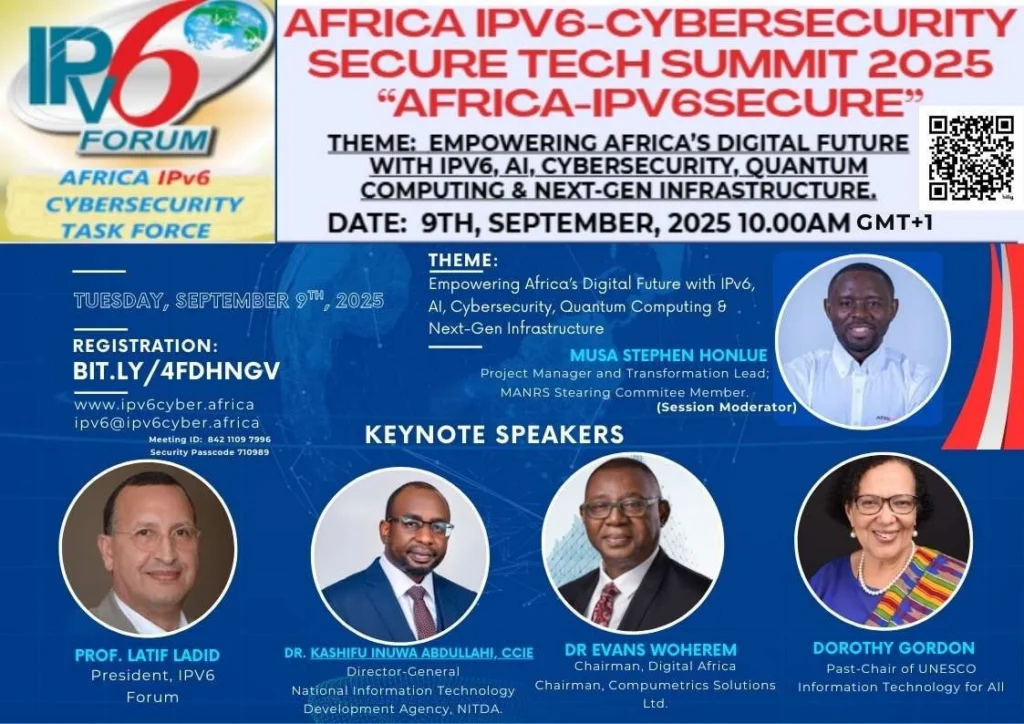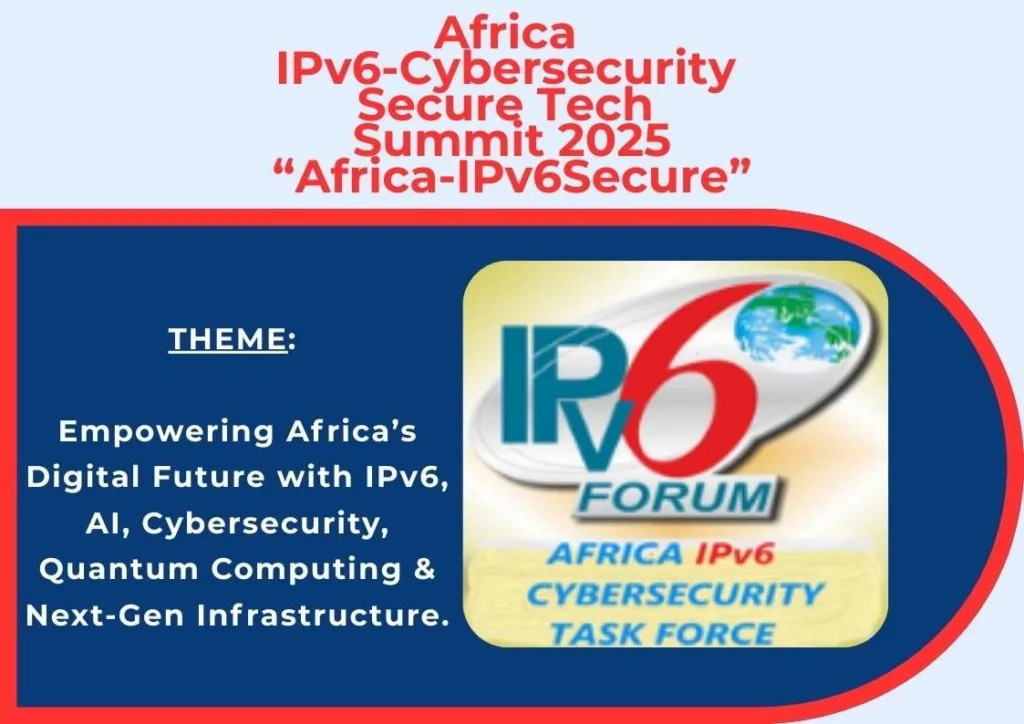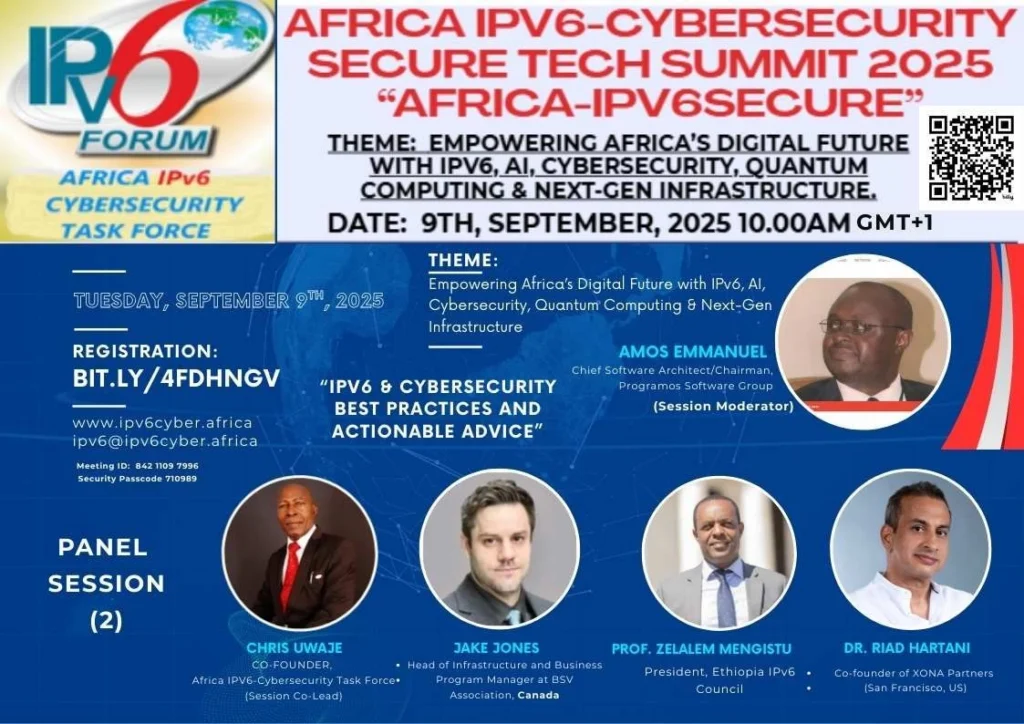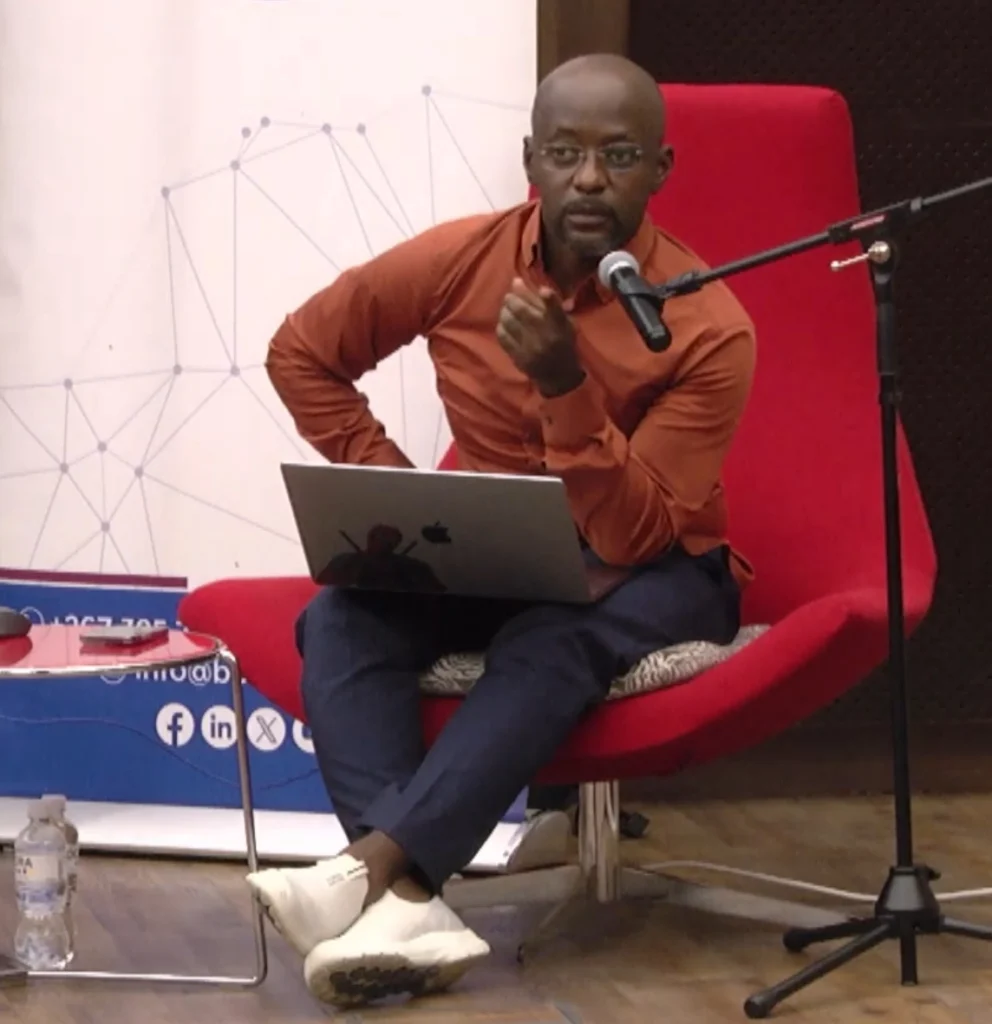|
Getting your Trinity Audio player ready...
|
The term “IPv6” may not generate headlines or mainstream buzz, but it is the enabler of all the latest technology that does.
- Mapping Africa’s future with digital manifestor
- Fueling the next killer apps
- The hidden power of BSV
- IPv6 renaissance begins
For those who are unaware, IPv6 stands for “Internet Protocol Version 6” and provides an almost unlimited number of IP addresses for secure, end-to-end connectivity. It is far superior to its predecessor, IPv4, which has limited IP addresses and bottlenecks such as NAT (Network Address Translation).
According to Latif Ladid, President of the IPv6 Forum and Co-Founder and chair of the Africa IPv6 Cybersecurity Task Force, IPv6 has 60% penetration worldwide, with 3.2 billion users, over 60% of whom are in Asia. He confirmed that a big focus now is on emerging regions such as Africa, as they can leapfrog straight into the latest tech IPv6 enables.

“We are at a pivotal moment in the evolution of global connectivity. The transition to IPv6 is not just a technical upgrade; it is the backbone of a connected, sustainable, and intelligent world,” Ladid declared in his opening speech at the Africa IPv6-Cybersecurity Secure Tech Summit on September 9.
Under the theme “Empowering Africa’s Digital Future with IPv6, AI, Cybersecurity, Quantum Computing, and Next-Generation Infrastructure,” the Secure Tech Summit brought together technology experts, policymakers, and industry leaders to identify next steps toward Africa’s digital revolution.

The group unanimously adopted the “Manifesto for Africa’s Digital Renaissance,” a direct call to action for governments, the private sector, academia, and civil society to achieve inclusive and sustainable development, digital sovereignty, and IPv6 adoption.
Chris Uwaje, Co-Founder of Africa IPv6 Cybersecurity Task Force, described the event as “incredibly amazing, creative, and strategically inclusive.”
“Africa is a latecomer in interrogating the challenges, opportunities and benefits of the digital/technology transformation ecosystem and recommends a Mandatory IPv6 Adoption to secure her Data Sovereignty for the digital security of the Continent as well as supercharge sustainable development,” Uwaje shared with CoinGeek after the event.
Jake Jones, IPv6, AI, and Internet Standards at the BSV Association, also one of the event’s “Technical Pioneers” and speakers, described the Secure Tech Summit as “excellent.” Jones confirmed he left with a much better understanding of the difficulties, opportunities, and potential the region faces with respect to information technology.

“Africa can avoid the costly mistakes others made—by planning early, prioritizing native dual-stack (treating IPv4 and IPv6 as native, separate, systems instead of trying to use fragile transition technology like 6to4 or Teredo which failed 20-40% of the time), securing DNS and firewalls, protecting privacy, and investing in training,” shared Jones.
“Africa can leap ahead by copying Asia’s playbook (particularly India and China)—policy leadership, industry collaboration, and training—making IPv6 part of digital transformation, not just networking,” he said.
In his opening speech, Ladid emphasized IPv6’s support of new technologies such as artificial intelligence (AI) and blockchain, “the three musketeers of technology,” as coined by Jones.
IPv6, thanks to its end-to-end connectivity, is what secures the data sharing between devices and systems, including AI-driven applications. With blockchain, IPv6 enables secure, decentralized, and transparent data management.
“AI and blockchain are the long-awaited killer apps for IPv6. The first killer app was the web, the second was the mobile Internet…AI will need verification of the valid and true source of information, and blockchain will be ideal for this,” Ladid explained.
“IPv6 is vital to the operation of blockchain as a peer-to-peer digital cash system,” added Jones.
“It’s larger address space and end-to-end connectivity allow every device, individual, or service to directly communicate and transact…it’s essential for high-throughput micropayments (the competitive advantage of blockchain), where billions of micro transactions need to be able to flow anywhere,” he said.“Teranode (including its micro services architecture) is the missing piece to unlocking high-throughput micropayments, which not only provide a way to replace the ad-revenue or subscription-revenue models, but also provide a way to build and access numerous other business opportunities and services like digital identity, banking services, and automated notarization,” confirmed Jones.
He went on to explain how BSV can provide tremendous value to telecom providers of mobile payment services in African countries, with fees as high as 45%.
“An IPv6-based BSV alternative to these could reduce transaction costs to sub-cent levels, making the services more accessible and more useful in a wider array of contexts,” he said.
“BSV can also be used as the basis for a digital identity solution which could include digital access to services such as government programs and a low-fee digital banking stack,” Jones added.
With so many use cases on the horizon for Africans, it’s clear that the scope IPv6 enables will improve lives and create opportunities. Stakeholders are taking a united approach to jump-starting the digital renaissance in Africa, with education of IPv6 at its core.

Mukom Tamon, responsible for IPv6 courses, workshops, and government lobbying at the African Registry, has created the most extensive IPv6 training program in Africa, with more than 10,000 engineers trained in the last 15 years. His goal is to encourage the deployment of IPv6 across the continent in partnership with associations such as the Africa IPv6 Cybersecurity Task Force.
“Without IPv6, African countries cannot build digital economies optimised for production rather than consumption,” said Tamon.
The Manifesto for Africa’s Digital Renaissance includes a pledge to meet annually and review progress, establish continental implementation task forces, create public scorecards for accountability, mobilize resources for prioritized initiatives, and build the Africa Africans deserve through technology.
Watch | IPv6: The solution to IPv4’s address limitations

 02-20-2026
02-20-2026 




